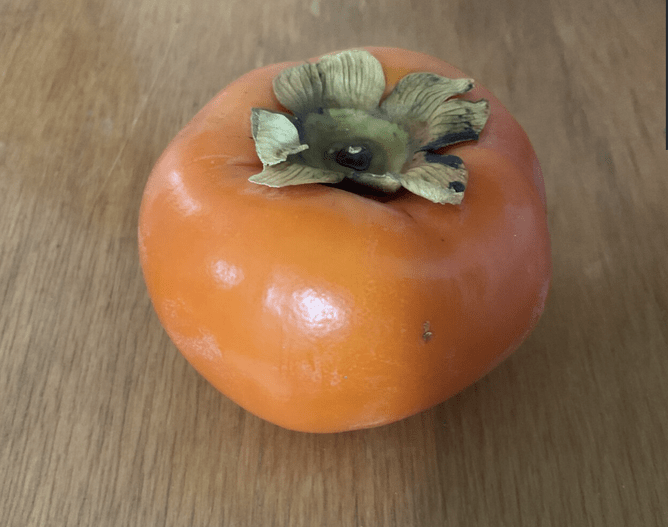Perfectly Persimmons
It is late autumn, and the perfect time for harvesting and eating persimmons. These are one of my favourite fruits, and I always associate them with my birthday, which is around this time of year.
Persimmons generally come in two kinds - astringent and non-astringent. Astringent persimmons contain higher levels of tannins, and need to be ripened before they are pleasant to eat. Non-astringent persimmons still contain tannins, but are far less astringent before ripening, and lose most of their tannic quality sooner. They can be eaten whilst still firm, and stay edible even when soft.
They have other uses too - in Korean folklore, dried persimmons have a reputation for scaring away tigers, and in Malaysia and Singapore, large persimmons are seen as a status symbol (wikipedia.org).
If you are fortunate to have a persimmon tree, you will know that they like to be planted in full sun. They can cope with a variety of soil types, but they prefer free draining and deep loam type soils. They have a sensitive tap root, so it is not advised to grow them in containers, as they can’t handle the extremes of cold and hot that goes with growing in a pot.
Persimmons can grow a lot of fruit on brittle branches, so it is important to grow them in a spot sheltered from wind. Also don’t allow the branches to become too heavy with fruit - thin the fruit in mid to late summer if it is too plentiful to make the branches strain.
They require regular and plentiful watering, from when the fruit sets right through to the start of colouring appearing on the fruit. You can grow them from seed, or purchase a seedling from your local garden centre.
Persimmons are a good source of vitamin C, especially in the winter months, containing 20% of the RDA of vitamin C in just one fruit, according to the website
www.health line.com.
In addition, they are a good source of thiamin (B12), riboflavin (B2), folate, magnesium, and coooer. They contain good amounts of potassium, and are low in calories, so they help to keep us healthy whilst still enjoying something yummy. They have lots of antioxidants, and can positively contribute to a healthy heart diet. Their high levels of vitamin C help to promote an anti inflammatory effect, and their high fibre content can help decrease troublesome cholesterol levels. They have lots of vitamin A, which promotes eye health. They are great in fruit crumbles, muffins, cakes, breads - just about anything you can think of!
One of my favourite recipes is a banana and persimmon rice and almond porridge. It is a great warming, comforting start to cold winter mornings, and it has a high level of protein to keep me going. If you would like recipe ingredients and instructions, please sign up to our free weekly recipe, using the contact form below.
Happy gardening 🌻
